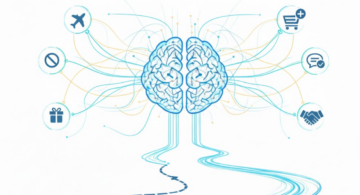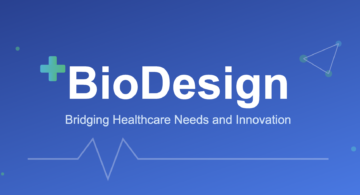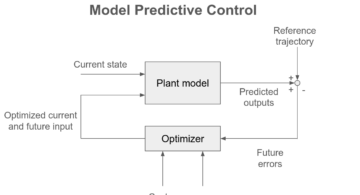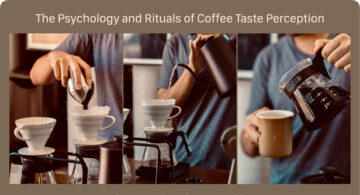エンジニア向け
CARLA an open-source simulator for autonomous driving research and development.
Raihan Kabir
Autonomous driving technology is rapidly transforming the automotive industry, offering the potential for safer, more efficient roads. Key to developing these advanced systems is rigorous testing and validation, which is where simulators like CARLA come into play. CARLA (Car Learning to Act) stands out as a cutting-edge open-source simulator specifically designed for autonomous driving research and development. This blog delves into what makes CARLA an invaluable tool for developers, researchers, and enthusiasts in the field of autonomous driving.
Overview of CARLA
CARLA is an open-source simulator for autonomous driving research developed from the ground up to support the development, training, and validation of autonomous urban driving systems. The versatility and robust framework of CARLA enable users to simulate realistic, controlled scenarios that can be hard to replicate in real-world tests. It operates under an Apache 2.0 license, allowing users free access to build, modify, and distribute their software.
Features of CARLA
CARLA is designed with the needs of researchers and developers in mind, equipped with a range of features that facilitate comprehensive testing of autonomous driving algorithms. These include:
- Realistic Environments: CARLA offers highly detailed urban scenarios and diverse weather conditions, providing realistic contexts for testing.
- Flexible API: Users can program and control every aspect of the simulator via Python, enabling integration with machine learning libraries and other tools.
- Sensor Simulation: It supports a wide range of sensor simulations, including cameras, lidar, GPS, and more, essential for sensor fusion and decision-making algorithms in autonomous vehicles.
- Scenario Generation: Users can create custom scenarios, defining specific traffic conditions, pedestrian behaviors, and even unexpected events, crucial for testing the robustness of autonomous systems.
Benefits of Using CARLA
The use of CARLA in autonomous driving research provides several benefits:
- Safety: By testing algorithms in a virtual environment, developers can ensure their systems are reliable before real-world testing, reducing the risk of accidents.
- Cost-Effectiveness: Virtual testing eliminates the high costs associated with physical vehicle tests and setups.
- Scalability: Simulations can be scaled up to test multiple scenarios simultaneously, accelerating the development process.
- Community Support: Being open-source, CARLA benefits from contributions from a global community of developers, which enhances its capabilities and relevance.
Real-World Applications
CARLA is not only a research tool but also serves as a training ground for machine-learning models that power autonomous vehicles. Companies and academic institutions use CARLA to train and refine their algorithms under controlled yet challenging environments. This hands-on experience is crucial in progressing from theoretical models to practical applications that can handle the complexities of real-world driving.
CARLA is a versatile open-source simulator that supports a broad range of research areas in autonomous driving. Its detailed simulation capabilities enable researchers to explore various aspects of vehicle autonomy and driving dynamics under controlled, reproducible conditions. Here are some key research and development areas where CARLA is particularly useful:
- Autonomous Vehicle (AV) Control Systems :
- Development and testing of driving algorithms: Developers and researchers use CARLA to code and refine various driving algorithms responsible for vehicle control, including path planning, obstacle avoidance, and trajectory optimization. By simulating real-world driving scenarios, developers can iteratively test and enhance these algorithms to ensure they perform reliably under diverse conditions. CARLA is also used to implement and test advanced driving algorithms, including steering, acceleration, and braking commands based on simulated sensor inputs.
- Reinforcement learning for driving policies: CARLA provides a rich environment for training AI models using reinforcement learning techniques to learn optimal driving strategies from scratch.
- Sensor Fusion and Perception Systems:
- Simulation of various sensor modalities: CARLA can simulate cameras, lidar, radar, and GPS, which are crucial for the perception systems of autonomous vehicles.
- Testing and validation of sensor fusion algorithms: Researchers can test how different sensors combine data to form a coherent understanding of the vehicle’s environment, essential for reliable navigation and obstacle detection.
- Traffic Scenario Simulation:
- Realistic traffic environments: CARLA allows the creation of complex traffic scenarios to study how autonomous vehicles interact with various traffic elements, including diverse vehicle types and pedestrian behaviors.
- Evaluation of vehicle behavior in unusual or dangerous conditions: Simulating critical situations helps in understanding and improving how autonomous systems react under pressure, such as in near-crash scenarios.
- Vehicular Communication (V2X):
- Testing connectivity and networking: CARLA can be used to simulate and test vehicle-to-everything (V2X) communication, which is crucial for the cooperative perception and coordination among multiple vehicles and infrastructure.
- Exploration of cooperative driving strategies: This includes platooning and cooperative merging, where multiple vehicles communicate to make collective decisions.
- Human-Machine Interaction (HMI):
- Interface testing: Researchers can use CARLA to test how effectively information is conveyed between the vehicle and human operators or passengers.
- Simulation of driver attention and behavior: This research is crucial for developing systems that can alert drivers and re-engage them in critical driving tasks when necessary.
- Ethical Decision Making:
- Scenario-based testing of ethical dilemmas: CARLA can simulate scenarios that require the autonomous system to make complex moral decisions, such as choosing between two unavoidable harms during an imminent crash.
- Machine Learning and Data Collection:
- Synthetic data generation for training AI models: Since acquiring real-world training data can be expensive and time-consuming, CARLA can generate vast amounts of annotated training data through simulations.
- Testing and Training Machine Learning Systems: The synthetic data generated through CARLA can be directly used to train and test machine learning systems, providing a cost-effective and scalable method for improving the accuracy of algorithms that drive autonomous vehicles.
- Domain adaptation experiments: Researchers can use CARLA to study how models trained in virtual environments can be adapted to real-world conditions.
- Software and Hardware Integration:
- Software-in-the-Loop (SIL) and Hardware-in-the-Loop (HIL) Testing: CARLA facilitates both SIL and HIL testing, allowing developers to integrate and test their software and hardware solutions in a simulated environment that mimics real-world conditions. This integration is crucial for debugging and optimizing system performance without the need for extensive field tests.
Future Prospects
The future of CARLA looks promising as it continues to evolve. Ongoing developments focus on improving simulation realism, expanding scenario libraries, and enhancing sensor accuracy. As the community grows, so does the platform’s potential to significantly impact the advancement of autonomous driving technologies.
Conclusion
CARLA represents a significant leap forward in autonomous driving research and development. Its comprehensive features and open-source nature democratize access to high-level simulation tools, paving the way for innovative solutions in autonomous driving. Whether for academic research, industrial application, or even hobbyist experimentation, CARLA offers a robust platform to safely and efficiently advance the capabilities of autonomous vehicles.
For those interested in exploring autonomous driving technologies or looking to contribute to this exciting field, CARLA provides the perfect starting point.


 2026/01/23
2026/01/23 2025/12/12
2025/12/12 2025/12/07
2025/12/07 2025/11/06
2025/11/06 2025/10/31
2025/10/31 2025/10/24
2025/10/24 2025/10/03
2025/10/03 2025/08/30
2025/08/30